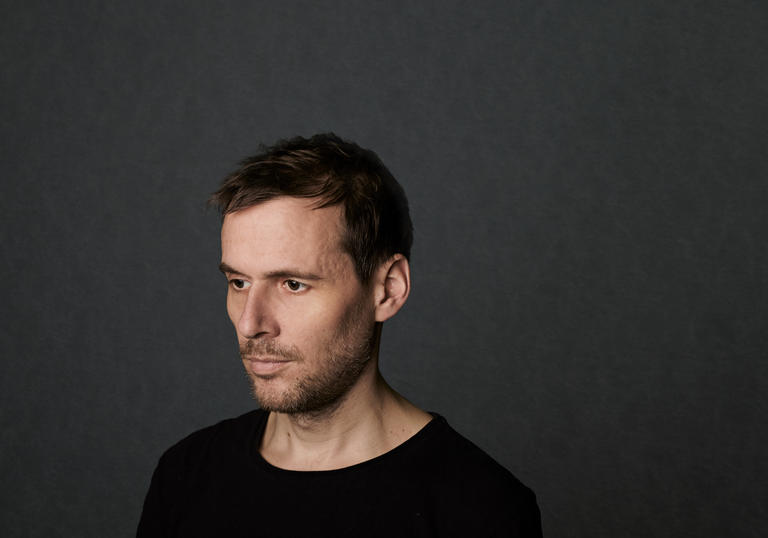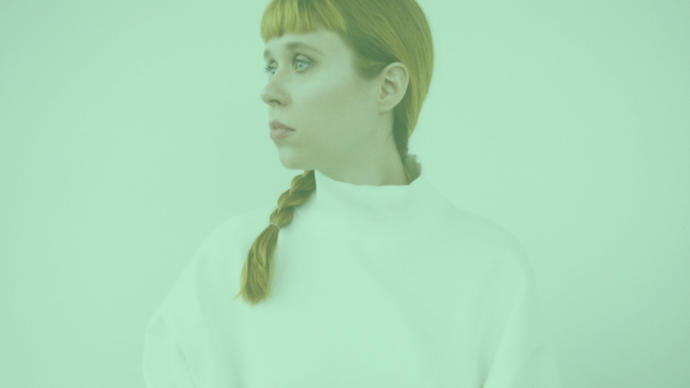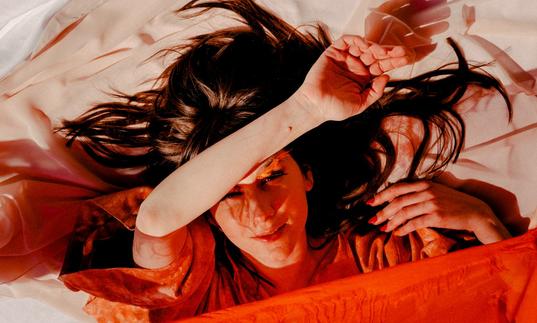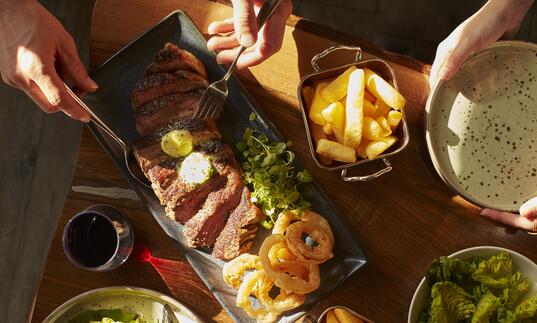Chris Clark’s ninth studio album Playground in a Lake is an atmospheric soundtrack for an uncertain future. At times elegiac and funereal, at others hauntingly tranquil and at peace, the album is full of beautifully orchestrated strings that Clark recorded in Budapest and Berlin, having learned to read and write sheet music specifically for the task. This turn towards classical music might seem unusual coming from an artist who started out making weird, wonky techno and electronic music at the turn of the millennium, but Clark’s career has never been straightforward. He’s an artist as comfortable releasing a rave 12” as he is scoring contemporary dance, reinterpreting Bach at the Royal Albert Hall, and writing acclaimed scores for film and TV like The Last Panthers, Kiri, and Daniel Isn’t Real.
‘It’s quite a leap from what I was up to even ten years ago,’ Clark admits of the new album. ‘You have to acknowledge your roots, but I am a different person now. I’ve been working with orchestras and strings for five years and composing film scores for nearly ten years. It takes a while for that to percolate in the public’s imagination. That said,’ he adds, ‘I still want to write techno – so I don’t do myself any favours.’
For tonight’s show, Clark is working with the London Contemporary Orchestra and adding live electronic elements. ‘I like how open they are to experimentation, trying different combinations of sounds,’ Clark says of the LCO. Robert Ames, the orchestra’s co-principal conductor, has ‘such a broad range of interests that converge with mine. He’s got a very cool approach to the idea of electronics, meeting those sounds in the acoustic space.’
Tonight will be a number of firsts for Clark: the first time performing music from Playground in a Lake, the first time performing any of his soundtracks live, and the first time performing with an orchestra in front of an audience. It’s also the first time he’s performed at all since the start of the pandemic – his last live outing was all the way back in 2019, and it was with a very different audience, at a rave in Prague. ‘It’s a bit weird,’ he says. ‘It’s jumping in at the deep end with a completely new show that I’ve never done before. It is possibly the most stressful thing I could do. It’s not exactly dipping my toe back into it – it’s like ice water swimming with no clothes on. But that’s OK. Ice swimmers like doing that, don’t they?’
Clark’s not too nervous about working with a live orchestra. ‘I’ve recorded a lot of strings, and in my head I’m thinking, ‘It can’t be that different to a group recording session.’ Because it’s not like jamming, which I used to do a lot. I used to go to a practice room and just play without any plan at all. This is the complete opposite of that. It takes a while to get used to that with orchestras, but I think the more prepared you are the better it goes, generally.’ Working with electronic elements like synthesizers and sub bass does offer some ‘wildcard elements’, but Clark wants to avoid any clichés associated that sometimes pop up when electronic artists work with classical musicians. ‘I like the purity of the strings,’ he says. ‘I think it’s expected that that’s what I’m gonna do: “You make techno, so let’s put these effects on the strings.” If it’s appropriate it’ll happen, but I quite like doubling down on the pure notation of it and seeing how that comes across. I can’t imagine it working any better with some flanger over it.’
A point he repeatedly makes is that the classical and electronic elements are not in opposition to one another: ‘I love the sound of warm sawtooth waves that are slightly detuned. They sound magnificent and more organic than a lot of other acoustic music to my ears. Strings also have that potential. So, it’s about finding the right way to blend those palettes. Those two slightly polarised forms can coexist.’ It’s the sound that matters, rather than the idea that one form is inherently better or more worthwhile than the other. That’s why he taught himself how to read and write sheet music, why he stepped up his piano playing, and why he learned the cello – to understand classical music from a formal perspective and to put himself in the shoes of a musician playing it. ‘There is this idea that you can use the surface image of the orchestra as a status signifier – using the cultural status of it, rather than the actual grind of understanding harmony,’ he says. ‘The difficulty of composing is overlooked by the culture surrounding it.’
The show promises extended versions of tracks from Playground in a Lake, which he’ll be playing alongside pieces from his soundtrack work, bringing in elements of new material he’s working on too. He’s keen for people to hear his scores played as standalone pieces. ‘I’m excited to hear it in an actual show that’s got nothing to do with the TV series,’ he says. ‘A lot of that music is not composed to picture, and I feel it exists in its own right. I’ve never thought, “It’s a film score, I don’t need to put much effort into it,” or that it doesn’t need to be personal. It’s always personal.’ Working with these pieces led to him imagining a scenario where he could work more of his electronic back catalogue into a similar show in future too. ‘Alas, this show is only an hour,’ he says. ‘Maybe I can do that ten years down the line.’









